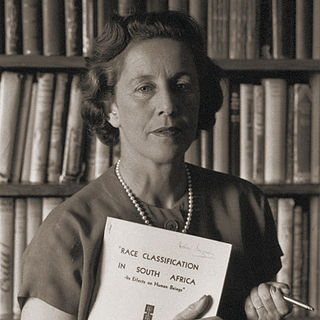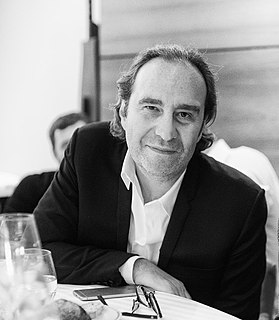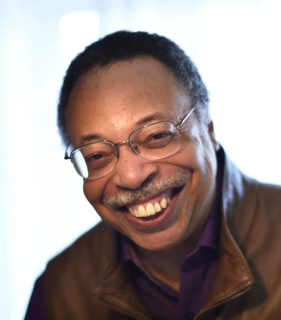A Quote by Helen Suzman
Perhaps the one comforting thought I got out of this whole disgusting affair was that over the years when the government was tapping my telephone, it must certainly have heard some home truths from me about themselves, often couched in good Anglo-Saxon terms.
Related Quotes
I have these guilts about never having read Chaucer but I was talked out of learning Early Anglo-Saxon / Middle English by a friend who had to take it for her Ph.D. They told her to write an essay in Early Anglo-Saxon on any-subject-of-her-own-choosing. “Which is all very well,” she said bitterly, “but the only essay subject you can find enough Early Anglo-Saxon words for is ‘How to Slaughter a Thousand Men in a Mead Hall’.
Some people think that English poetry begins with the Anglo-Saxons. I don't, because I can't accept that there is any continuity between the traditions of Anglo-Saxon poetry and those established in English poetry by the time of, say, Shakespeare. And anyway, Anglo-Saxon is a different language, which has to be learned.
The early 20th Century was probably the high tide of global white supremacy - I'm going to call it that because that's how people thought of it - and to be specific, Anglo-Saxon supremacy: The idea that white Anglo-Saxon Protestants were at the top of the world, representing the highest achievement possible for all of humanity, with Darwin's theories being used to prop up this belief.
My uncle was the first one in my family to get a telephone. It was like going to the moon. He came running over to tell us, and we were so proud. A telephone! We didn't have to go to the candy store to phone any more. We went around telling everyone. But we didn't hear from my uncle for three days, so my father got worried. He said, Let's go over there. We got there, and my uncle was very depressed. I asked, What's the matter? He said, I got a telephone and nobody called me. He didn't give his number out - he didn't know that you had to!
Our concerns about what we saw in Australia: an economy clearly tied to China has hitched its wagon to the tail of the tiger. In terms of the general complacency, what we heard over and over from investors and clients and potential clients is, 'yes, yes, there are some excesses, but the government will figure out a way.
Our concerns about what we saw in Australia: an economy clearly tied to China has hitched its wagon to the tail of the tiger. In terms of the general complacency, what we heard over and over from investors and clients and potential clients is, 'yes, yes, there are some excesses, but the government will figure out a way.'
Being aware of truths about what is good or right or about what we ought to do is not the same as deciding what to do. Nor can the former truths be derived from decisions about what to do, or about procedures for making such decisions, unless these procedures themselves rest in some way on the apprehension of truths about what we ought to do.
Children who wish to become good and great men or good and noble women, should try to know well all the people whom they meet. Thus they will find that there is no one who has not much of good; and when they see some great folly, or some meanness, or some cowardice, or some fault or weakness in another person, they should examine themselves carefully. Then they will see that, perhaps, they too have some of the same fault in themselves - although perhaps it does not come out in the same way - and then they must try to conquer that fault.
I have this disease late at night sometimes, involving alcohol and the telephone. I get drunk, and I drive my wife away with a breath like mustard gas and roses. And then, speaking gravely and elegantly into the telephone, I ask the telephone operators to connect me with this friend or that one, from whom I have not heard in years.
When I speak in Christian terms or Buddhist terms I'm simply selecting for the moment a dialect. Christian words for me represent the comforting vocabulary of the place I came from hometown voices saying more than the language itself can convey about how welcome and safe I am what the expectations are and where to find food. Buddhist words come from another dialect from the people over the mountain. I've become pretty fluent in Buddhist it helps me to see my home country differently but it will never be speech I can feel completely at home in.
Over 5,000 years, states have made surprisingly consistent claims about their duties. They have promised to protect people from threats; promote their welfare; deliver justice and also, perhaps less obviously, uphold truth - originally truths about the cosmos, and more recently truths drawn from reason and knowledge.

































